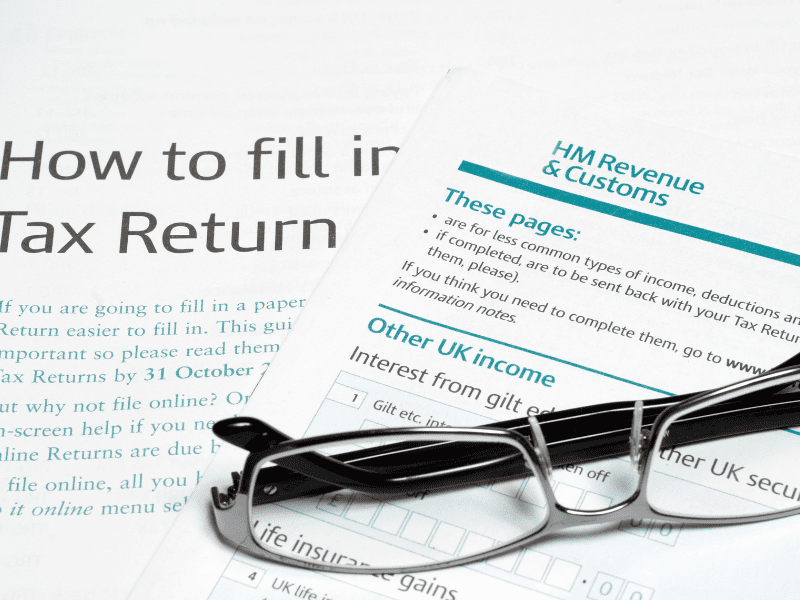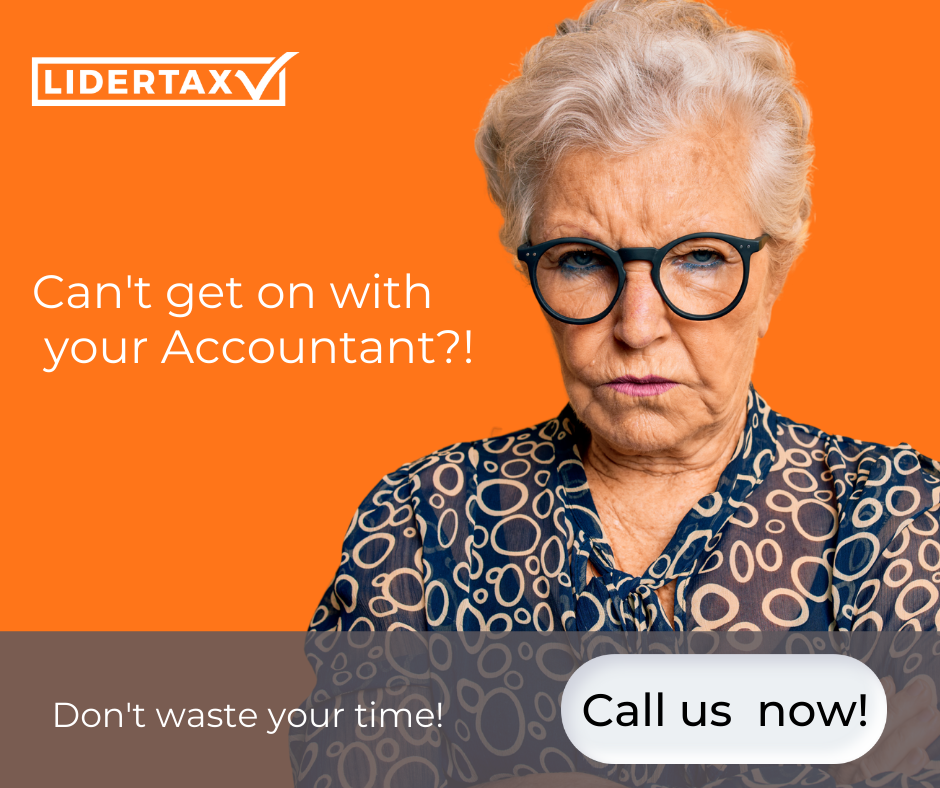
Filing your tax return accurately is hugely important. However, it’s not always easy to get this important process right, especially if you’ve never done it before. But don’t worry; our experts here at LiderTax have outlined all of the key things you need to know to help with this all-important decision.
10 Common Mistakes When Filing a Self Assessment Tax Return You Should Know
Filling out your self assessment shouldn’t be nerve wracking. If you’re not quite sure what you need to do, though, things can feel daunting. Fortunately, being aware of the following common mistakes can help.
1 Don’t Push the Deadlines!
The biggest mistake people make when submitting their self assessment tax return is missing deadlines. Indeed, you might face numerous different issues during this process; however, missing the deadline for your self assessment can be incredibly frustrating (and costly).
Of course, the most obvious reason to miss your deadline for self assessment is simply forgetting to file it. If you forget about the deadlines for self assessment, they can creep up on you easily. Remember: self assessment tax returns need to be submitted by the end of January digitally. If you’re submitting one on a paper copy, though, you’ll need to send it by the end of October.
However, just because you have enough time to submit your return doesn’t mean it’ll be on time. If you send a paper copy, it’s possible for the return to arrive late. This could leave you facing fines for late self assessment. Moreover, if you’re submitting online, you’ll need to get your self assessment UTR. If you need a reminder, or if you’re sending for the first time, this can take a while to arrive. So, always factor long delivery times in when thinking about how much time you’ll need.
2 Incorrect Calculations
One of the most important aspects of the self assessment tax return is your income and expenditure calculations. However, if you get this wrong, you could end up paying the wrong amount of tax. And, of course, that could land you in a whole lot of trouble with HM
Incorrect calculations are most often an issue for people who have a large number of transactions. However, this isn’t always the case. Naturally, it’s possible for errors to arise even with fewer transactions. All it takes is one miscalculation and your self assessment count will be incorrect. So, be sure to check and double check when working out your income and expenditure. This can be the difference between getting the self assessment right (or not).
3 Providing the Wrong Information
When we think about mistakes on our self assessment tax returns, we generally think about filing information incorrectly and the like. However, this isn’t always the case, and sometimes, this can be as simple as providing the wrong information. So, check that you have filled out your name, business name, contact details, and the like carefully. Doing so might seem obvious at the outset, but it can help save you the hassle of fixing it later.
4 Missed Income
We’ve mentioned incorrect calculations already – but another common mistake lies in missed income. This is especially concerning if your business receives money through several payment methods.
As such, when submitting your self assessment, always be careful to ensure that you don’t miss income. It’s surprisingly easy to forget about a few transactions, but this could significantly impact how much tax you pay.
5 Missed Expenditures
Missed income could leave you paying less on taxes than you owe. Along a similar line of thought, omitting expenditures from your self assessment could mean you overpay. And, with tax already being enough of a headache for many firms, none of us want to be paying more of it!
So, when completing your self assessment, take care to ensure you have listed all expenditures. Even if they seem minor, it’s important to note them; not only does this ensure the accuracy of your return, but it can save a potentially significant sum of money in the long run too.
6 Forgetting Your Tax Free Allowance
It’s easy to assume that all the profits you make as a self employed worker will be taxed. That’s not necessarily true, though! In fact, depending on your earnings and whether you have other income, you may be able to consider the tax free allowance.
Your tax free allowance is a set amount of income before you’ll need to pay taxes. If you make less than this amount, you won’t have to pay tax. If you make more than this, you’ll only pay taxes on the amount above the tax free allowance.
At present, this is around £12,570 per year. As such, if you earned £22,570, you’d only pay taxes on the £10,000 you earned above the allowance. That’s a significant difference in terms of how much tax you need to pay!
7 Claiming Disallowed Expenses
Sadly, not all expenses can be claimed. In fact, some expenses are not claimable when submitting your self assessment. Claiming these could potentially land you with a hefty penalty, so it’s really not worth taking the risk.
8 Not Distinguishing Between Personal and Business Expenses
When it comes to self assessments, it can be tempting to put personal expenses on. After all, this would lower your profits, thereby reducing the amount of tax owed. However, this can actually be a major mistake; so, it’s vital to differentiate carefully between personal and business expenses.
Of course, when you have something that’s used for both the business and your personal use, this can be difficult. For example, many people will use their mobile phones or laptops both personally and professionally. If you’re unsure, it may be worth contacting a local accountant for more support.
9 Currency Conversion Errors
If you receive payments in another currency, you’ll still need to declare these. However, getting the currency conversion wrong can leave you struggling with your income. In line with this, make sure you carefully record all currency conversions at the time; this simple step can help reduce the risk of getting caught out at the time.
10 Doing It Alone
Completing your self assessment is daunting. However, many people prefer to complete their self assessment alone rather than reaching out for help. This can leave you facing a huge amount of pressure and stress for no reason, though!
Luckily, there are plenty of people out there who can help. For example, your local accountant should be able to advise you further on your situation. This could include how and when to tackle the tax return and so on. Always make sure you’ve kept this in mind to help inform your decision.
Final Thoughts
Filing a self assessment tax return is never an easy process. Fortunately, though, this doesn’t have to be impossible either. In fact, with the right approach, it’s surprisingly easy to submit your self assessment tax return. But, if you’re at all unsure we recommend getting professional support from a local expert accountant to help.




